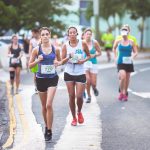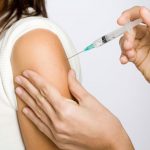Anyone can use an Automated External Defibrillator (AED) on someone who is suspected of being in cardiac arrest.
You do not need specialised training to use an AED.
They have simple, step-by-step instructions and use clear voice commands to guide you through the process of treating a victim of suspected cardiac arrest, including where and how to attach the electrodes and administer a shock if needed. They also tell you when to stop and restart cardiopulmonary resuscitation (CPR).
By learning CPR, you can give someone with a sudden cardiac arrest the best chance of survival.
AEDs strengthen the chain of survival and help save lives. When a person suffers a sudden cardiac arrest, their chance of survival decreases by 7% to 10% for each minute that passes without defibrillation.
AED SALES
Cayman Heart Fund (CHF) sells AEDs for use in private and public homes and businesses. It also offers a subscription-based rental option.
To discuss your needs, check stock levels, or for expert advice, contact CHF on info@caymanheartfund. com or 916-6324.
The new charity LifeLine is creating and maintaining a national database of AEDs linked to the Department of Public Safety Communications (9-1-1). They have, to date, registered 165 AEDs throughout the Cayman Islands. This critical database of information allows the 9-1-1 operators to identify the closest AED to the scene of a cardiac arrest as well as alerting registered first responders so that they may attend, provide CPR, and help save more lives. To register an AED, please visit lifeline.ky or contact [email protected].
CARDIOPULMONARY RESUSCITATION
Around 80% of cardiac arrests happen outside a hospital environment. That means that you are most likely to carry out CPR on a loved one, a colleague, or a friend.
By learning CPR, you are giving them the best chance of survival.
There are several options for CPR/AED training in the Cayman Islands. Listed opposite are the main course providers that provide two-year certification on successful completion.
In addition, many dive operators also offer the Emergency First Response (EFR) courses that meet the CPR and first aid requirements for the PADI Rescue Diver course.
SAVING LIVES WITH AEDS AND CPR
Cayman Islands Red Cross
t: 925-0715
e: [email protected]
w: redcross.org.ky
CAYSAFETY
t: 925-3579
e: [email protected]
w: caysafetytrainingandconsulting.com
Clever Fish
t: 516-4623
e: [email protected]
CPR and Respiratory Cayman
t: 926-0219
e: [email protected]
Fitness Connection
t: 949-8485
e: [email protected]
St Matthew’s University/ Cayman Heart Fund
t: 916-6324
e: [email protected]
w: caymanheartfund.ky
Information provided by Cayman Heart Fund.




